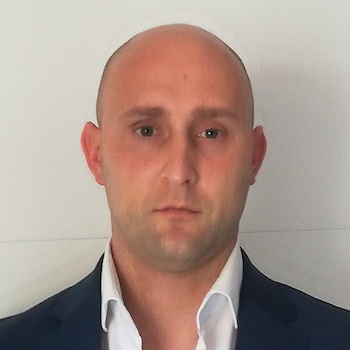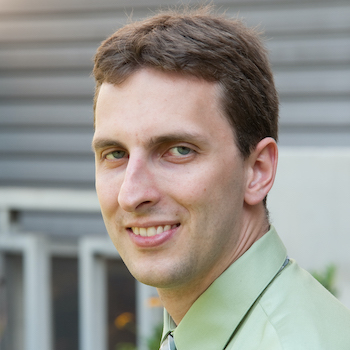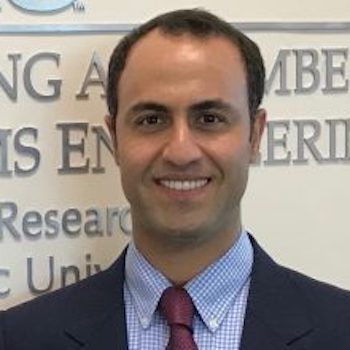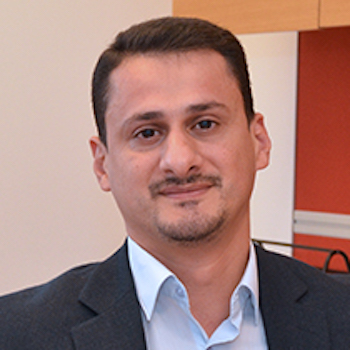KEYNOTE SPEAKERS:

|
Professor Luca Cagliero, Department of Control and Computer Engineering, Politecnico di Torino, Italy
website: www.polito.it/personale?p=luca.cagliero/ |
SPEECH TITLE: "The dark side of Large Language Models"
SUMMARY:
The hype generated by the advent of Large Language Models (LLMs) has stimulated a heated debate on their usability and reliability. Despite having achieved excellent performance on various Natural Language Understanding tasks, their extensive use as prompt engineering tools hides pitfalls and opens several research questions. Are zero-shot LLMs capabilities acceptable for most NLP tasks? How can we effectively design few-shot LLM-based learning processes? Are empirical outcomes produced by LLMs replicable? Can we use LLMs as evaluation tools? To what extent are LLMs effective in writing programming codes? In this talk, we discuss LLM challenges and opportunities with practical examples and critical thinking.
ABOUT THE SPEAKER:
Luca Cagliero has been associate professor at the Dipartimento di Automatica e Informatica of the Politecnico di Torino since January 2020. He holds a Master degree in Computer and Communication Networks and a PhD in Computer Engineering, both from Politecnico di Torino. He teaches B.Sc., M.Sc., Master-level, and Ph.D. courses in the areas of databases, data mining, Deep Learning, and Natural Language Processing. His current research interests are mainly in the fields of Natural Language Processing and Deep Learning, coordinating the activities of several PhD students and PostDoc researchers. He has worked on text summarization, classification and pattern mining and published 140+ papers in international journals, book chapters, and conference proceedings. He is currently Associate Editor of two Elsevier journals (ESWA, MLWA), TPC member of the major data mining conference, among which ACM SIGMOD, IEEE ICDM, ECML PKDD, and reviewer of the most renowned international journals in the fields (e.g., IEEE TKDE, ACM TIST, ACM TOIS, ACM TKDD, IEEE TPAMI). He is also member of the Steering Committee of the SmartData@Polito interdepartmental center.

|
Professor Timothy W. Wood, Directors of the GW Cloud Systems Lab, Computer Science Department, George Washington University, US
website: faculty.cs.gwu.edu/timwood/ |
SPEECH TITLE: "There and Back Again: From Cloud to Network to Edge"
SUMMARY:
The last two decades of computing started with a shift from primarily running software on people's home desktops to instead using large consolidated cloud data centers. The ever growing volume of data from end-users into the cloud then led to an increase in network-based middlebox processing through the use of software defined networking (SDN) and network function virtualization (NFV). Now we are poised to once again see a shift in where processing must occur -- the need for high performance, low latency services demands that computation be located at the network Edge, as close to users as possible. This talk will survey our work on Cloud Computing, Network Function Virtualization, and Edge Computing. Each of these environments poses distinct trade-offs and challenges that require us to rethink how operating and distributed systems must be designed. Our work in this area seeks to enable predictable, high performance solutions, while still providing strong isolation and resource efficiency.
ABOUT THE SPEAKER:
Timothy Wood is an associate professor in the Department of Computer Science at George Washington University. Before joining GW, he received a doctoral degree in computer science from the University of Massachusetts Amherst and a bachelor’s degree in electrical and computer engineering from Rutgers University. His research studies how new virtualization technologies can provide application agnostic tools that improve performance, efficiency, and reliability in cloud computing data centers and software-based networks. His PhD thesis received the UMass CS Outstanding Dissertation Award, his students have voted him CS Professor of the Year, and he has won four best paper awards, a Google Faculty Research Award, and an NSF Career award.

|
Professor Reza Azarderakhsh I-SENSE Research Fellow, Department of Computer Science and Electrical Engineering, Florida Atlantic University, US
website: faculty.eng.fau.edu/azarderakhsh/ |
SPEECH TITLE: "Cybersecurity at the Age of Quantum Computers: Post-Quantum Cryptography"
SUMMARY:
Entering the quantum era opens doors to endless possibilities solving hard cryptographic problems that used to be infeasible with classical computers. It has been widely accepted that quantum computer attacks on today’s security are expected to become a reality within the next decade if not the current decade. In this talk, I will discuss post-quantum cryptography (PQC) solutions and algorithms that have been investigated in the past several years and recommended for standardization by NIST and other international agencies for deployment and integration. I mainly focus on the engineering aspects of PQC and discuss the risk assessments and migration priorities.
ABOUT THE SPEAKER:
Dr. Reza Azarderakhsh is a CEO at PQSecure as well as a professor at Florida Atlantic Universities. He received his PhD from Western University in Canada. Prior to that he was a postdoctoral fellow at University of Waterloo. He was the recipient of prestigious award from National Academy Engineering on Education of Post-Quantum Cryptography. Dr. Azarderakhsh is well-known for his contributions in applied cryptographic engineering with focus on post-quantum cryptography and secure protocol development. He developed quantum-safe cryptographic IPs and is commercializing them for small embedded devices. He has published more than 100 papers in top-tier journals and conferences about cryptographic engineering and modern cryptography. He also serves as an associate editor at IEEE Transactions on Circuits and Systems-Cryptography Track.

|
Professor Samir Rustamov School of Information Technologies and Engineering, ADA University, Azerbaijan
website: ada.edu.az/en/schools/members/site/50-samir-rustamov |
SPEECH TITLE: "Automatic Spelling Correction: Challenges and Solutions. Use case of “Mirzə” – Azerbaijan Spelling Checker System"
SUMMARY:
Spelling Correction is a process of detecting and sometimes providing suggestions for incorrectly spelled words in a text. The talk describes selected approaches in a common theoretical framework based on deep learning and Shannon’s noisy channel model. An evaluation methods and benchmarks will be described on the example of “Mirzə” - Azerbaijani spelling checker system which have been developed at ADA University. Azerbaijan spelling checker system is available for free on www.mirza.az website.
ABOUT THE SPEAKER:
S. Rustamov received his PhD degree from the Institute of Cybernetics, and he was a post-doctoral student in the Georgia Institute of Technology in 2012-2013. Dr. Rustamov has a great experience in educational field by teaching different Artificial Intelligence related courses in ADA University and George Washington University. Dr. Rustamov is an enthusiastic and active researcher in the Artificial Intelligence field who is the author of dozens of articles in international conferences and pair-viewed journals. Dr. Rustamov interests are natural language processing and machine learning. He is particularly interested in how to use language understanding to generalize and learn more efficiently.
